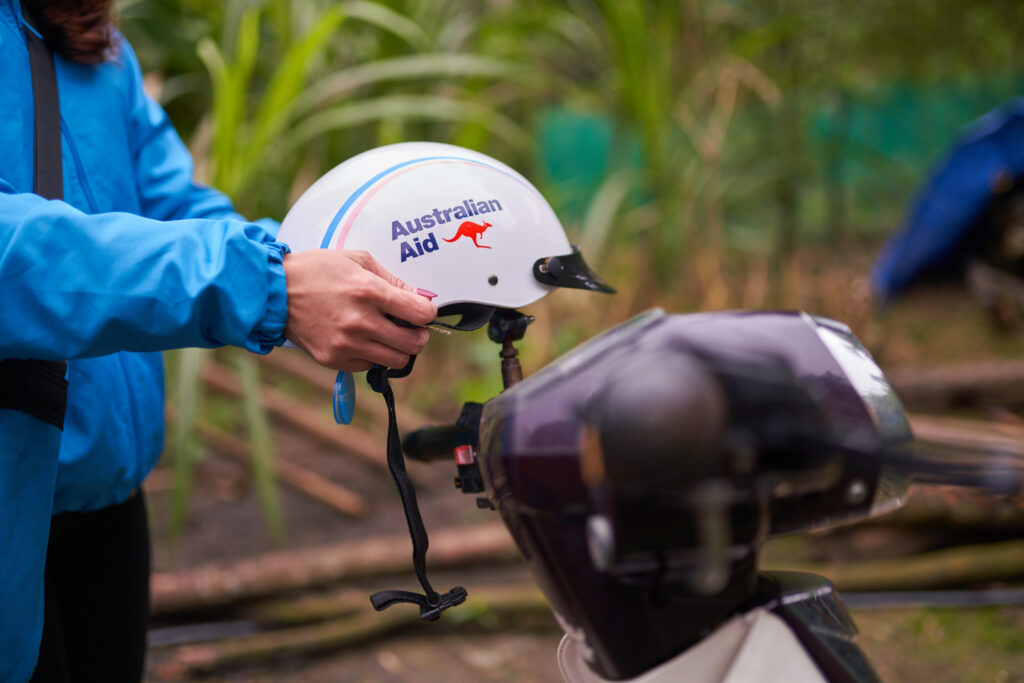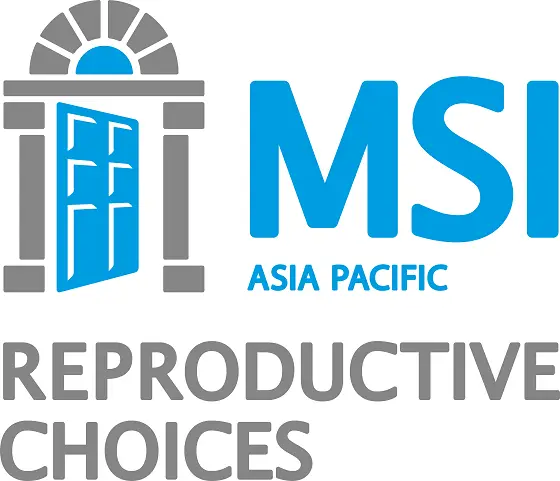"From our own work, we know that around 55% of the global unmet need for contraception is in the Asia and Pacific region. Rates of gender-based violence across the region are also high."

On Tuesday May 14, Federal Treasurer Jim Chalmers delivered the Federal Budget, an outline of what Australians can expect from government spending in the upcoming financial year.
Each year, Australia-based international development NGOs play close attention to allocations for Overseas Development Assistance, which reveal the government’s funding plans and priorities for international development.
This investment is largely in the Asia Pacific region, where many of our closest neighbours experience alarmingly high rates of poverty and inequality.
From our own work, we know that around 55% of the global unmet need for contraception is in the Asia and Pacific region. Rates of gender-based violence across the region are also high.
Women in the region still face significant barriers to accessing healthcare, education and financial security. Marginalised groups, such as people with disabilities, face additional barriers.
What did the budget deliver?
The 2024 Federal Budget delivered a modest increase in Overseas Development Assistance, targeting several priority areas. Here are some highlights from the Budget, and a breakdown of how they relate to our work.
Gender-based violence
The Australian Government allocated $20 million to support gender-based violence prevention, through a five-year project targeting the Southeast Asia region. The Budget Summary states,
“Bringing together partner governments, civil society, and regional and international organisations, the collaborative Platform is preventing gender-based violence by building evidence and supporting transformative programs, policy and action.”
Preventing and responding to gender-based violence requires a collaborative approach, as this violence impacts women and girls in complex ways across many facets of their lives.
At MSI, we actively enable violence prevention, as timely access to sexual and reproductive health supports people to build and maintain healthy and safe relationships. People fleeing interpersonal and state violence need access to sexual and reproductive healthcare to enable freedom of movement.
We also work in partnership with private and government partners to educate, influence and improve mechanisms that prevent violence.
Disability inclusive development
The Australian Government is supporting disability equity and rights through a funding boost for the Disability Inclusive Development Fund. This will primarily support increased access to assistive technologies, such as hearing and mobility aids, for children with disabilities in the Pacific.
Disability inclusion is a key priority for MSI. Through staff development, partnerships with disabled people’s organisations, targeted communications and fee waivers for people with disabilities wherever possible, we are working to ensure our services are truly accessible to all.
Climate change mitigation and adaptation
In 2024, Australia has re-joined the Green Climate Fund with a $50 million contribution. It has also contributed to the Asian Development Bank’s Asian Development Fund, which will deliver projects including climate-resilient hospitals and schools.
The Asia Pacific is warming faster than the global average, and it is home to most of the countries shown to be exceptionally vulnerable to sea level rises. The coming decades will be crucial to climate change mitigation, as well as adaptation for our highly vulnerable region.
Women and girls are particularly vulnerable to the impacts of climate disasters including forced marriages, sexual violence, unintended pregnancy and more. This is why we’re working to ensure women and girls in climate affected areas have timely access to sexual and reproductive healthcare.
With access to these services, they are also more likely to take on leadership roles in climate mitigation and adaptation, improving conditions for even more women.
Papua New Guinea's infrastructure
We’re pleased to see an ongoing high level of investment in Papua New Guinea’s infrastructure, including significant spending on the country’s road networks.
As a country with challenging terrain, road access continues to be a key barrier for the delivery of much-needed sexual and reproductive healthcare. MSI Papua New Guinea‘s incredible Outreach teams often travel for days by boat, foot and light plane to reach certain communities – some of the most remote in the world.
The country has exceptionally high rates of gender-based violence and low participation of women in leadership roles. Many passionate Papua New Guineans are working to change this, but infrastructure must keep pace. It’s essential that girls and women, regardless of their location, can access sexual and reproductive health information, advice, and referrals to community–centred services.
Looking forward
In a challenging economic environment, the Australian Government’s Overseas Development Assistance allocation continues to prioritise investments where they are most needed and most impactful.
Into the future, we hope to see Overseas Development Assistance packages that not only keep pace with inflation but respond to the growing need for climate resilience and humanitarian support.
We also look forward to the publication of the Australian Government’s new international development policies focusing on disability, LGBTIQA+ rights, and gender equality. These focuses are critical in ensuring safety and wellbeing for all.
Notably, over half of the world’s 1.8 billion young people live in the Asia Pacific – an opportunity to invest early in the health, resilience and prosperity of the region. Sexual and reproductive healthcare and rights are crucial to achieving this.
In partnership with the Australian Government, we hope to achieve a world where nobody is left behind, and where every child is by choice, not by chance.
MSI Asia Pacific is a member of the Australian Council for International Development’s campaign, Safer World For All, which calls on our nation’s leaders to act now to ensure a safe and healthy future for people everywhere. Learn more here.

